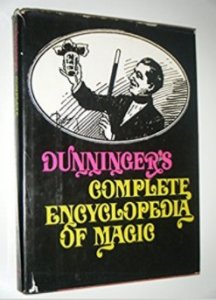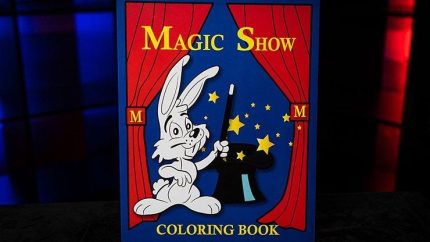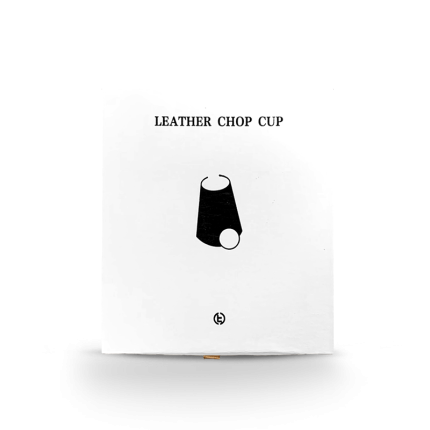Dunninger’s Complete Encyclopedia of Magic
Top customer reviews / all 5 stars
A truly lovely, old-style treatise on magic. Each of the many tricks is covered only by a paragraph or two, but it is enough to get the enterprising and handy mage building his or her own effects without too much hassle. If you’re a beginner looking for easy magic to get instant gratification, this book is NOT for you. But if you are intermediate to advanced, and want a nice silver mine of ideas, I wouldn’t hesitate to pick up a copy of this classic.
This is a great classic, well illustrated and straightforward explanations. An awesome reference to have on your shelf, or to read through if you need some ideas. A pleasant throwback to the old days, and a great way to teach yourself some new moves and refresh your basics too.
Had this book when I was a kid, some 40 years ago, and it stuck with me all this time. It is just as I remember it, and happy to have it again.
Joseph Dunninger’s work is a classic in the field of performance and stage magic. This is a massive collection of effects with detailed instructions, and the illustrations are particularly good. I think this book is best suited for more advanced performers, who will be more likely to invest the time and effort needed to construct some of the more elaborate effects. Even novice performers and serious fans, however, will find the detail invested in this book absolutely fascinating. There are some very good effects with cards, coins, matches, pencils, dice, and magic wands. The mentalism material is very solid too. Best of all, Mr. Dunninger’s work is valuable as a window into a bygone age. Many of these vintage effects can certainly be updated with a little ingenuity.
This book is a gem. There are magic tricks of every genre.
The presentation is perfect for application during frat parties,
public gatherings and a variety of other entertainment scenarios.
Some of these trick demonstrations come from every imaginable
circus routine. The beauty of the book is that each trick
is explained and drawn to scale for ease in replication.
For instance, the individual napkin folds are depicted in
connection with a series of napkin tricks. There is an extensive
section on how to make a puppet which includes the controller,
hand and arm control, body control, wrist, knee, head, neck
and torso threading. In addition, the back of the book contains
much detail about the personal history of the author. The work
is highly recommended.














